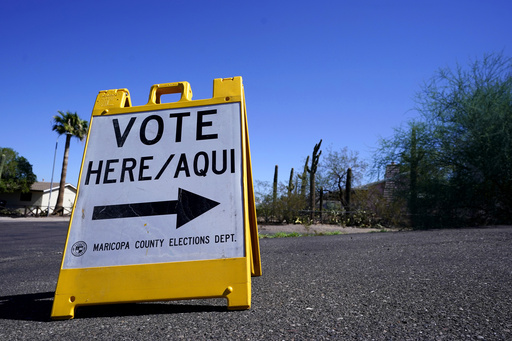PHOENIX — A ruling from a Maricopa County Superior Court judge has mandated that Arizona’s Secretary of State’s office must disclose a list of thousands of voters who were incorrectly classified as eligible to vote the full ballot due to a coding error. This decision came down on Thursday, revealing that 98,000 voters were impacted.
Initially, Secretary of State Adrian Fontes’ office rejected a public records request from America First Legal, a group led by Stephen Miller, a former advisor to Donald Trump, citing apprehensions regarding the accuracy of the list and the potential safety risks for voters involved. However, Judge Scott Blaney determined there was no credible evidence suggesting that releasing this information would lead to its misuse or incite violence against the voters who have yet to have their citizenship validated. The judge has instructed Fontes’ office to complete the release of the voter information by noon on the upcoming Monday.
Arizona’s political landscape is closely observed, particularly during presidential election cycles. With ongoing efforts by both parties to engage undecided voters, this coding glitch has spurred legal and political discussions. Although the glitch does not affect federal elections, it prompted the state Supreme Court to rule in September that these misclassified voters—representing about five percent of undecided voters—could still cast their ballots despite the uncertainty over their U.S. citizenship status.
The number of voters affected could have significant implications for local and state elections, as well as contentious measures on topics like abortion and immigration. Interestingly, the misclassified voters are fairly evenly distributed among Democrats, Republicans, and independents.
Fontes has asserted that while he possesses the list of 98,000 voters, he does not have the complete data set for the larger number he referenced previously. Following Judge Blaney’s ruling, Fontes’ office is currently evaluating their options related to the decision.
Moreover, Blaney has restricted the Strong Communities Foundation and America First Legal from sharing any information they receive from the Secretary of State’s office with anyone outside a select list of governmental officials until after the November elections. Counsel for America First Legal, James Rogers, expressed optimism that the records would help verify the citizenship status of the affected voters, and criticized Secretary Fontes for opposing their attempts to bolster trust in the state’s electoral integrity.
Additionally, the ruling mandates that Fontes’ office release communications and data exchanges with several state agencies, including the Arizona Department of Transportation and the office of Governor Katie Hobbs.
The root cause of the misclassification stems from a glitch within state databases connected to drivers’ licenses and the Arizona Motor Vehicle Division. Arizona stands out among other states in its requirement for voters to establish their citizenship before partaking in any local or state elections. While individuals who have not proven their citizenship but have affirmed it legally are allowed to vote in federal elections, Arizona recognizes drivers’ licenses issued after October 1996 as valid proof of citizenship. Unfortunately, due to the coding fault, 218,000 voters who obtained licenses prior to that date were erroneously labeled as full-ballot eligible.


